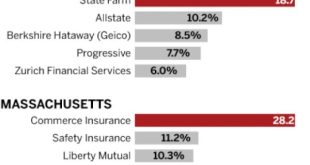Buyclomidonline.shop – Medicare Vs. Medicaid: What’s The Difference?. Medicare and Medicaid are government health care programs for people with special needs. Eligibility for both forms of coverage often overlaps, and beneficiaries may receive the benefits of both programs.
However, being eligible for one program does not automatically make you eligible for the other program. Medicare is a federal program, while Medicaid is a state program, so eligibility requirements for Medicaid may vary by state. Below we’ll look at the differences between Medicare and Medicaid and how to use your benefits.
Medicare Vs. Medicaid: What’s The Difference?
Medicare and Medicaid are not the same. Many people are confused between Medicare and Medicaid benefits. That’s because both are U.S. government health insurance programs. However, Medicare is federal and Medicaid varies from state to state.
Deep Medicaid Cuts Drive Backlash To House Health Care Bill
Medicare benefits are the same in all U.S. states and territories. Typically, Medicare benefits are available to people over age 65 or to Social Security Disability Benefits (SSDI) recipients under age 65.
On the other hand, each state administers Medicaid. Each state has different requirements and conditions for Medicaid enrollment. Medicaid does not have an age requirement, but it does have financial requirements. Your income and assets cannot exceed certain state thresholds to qualify for Medicaid coverage. Medicaid coverage is generally provided at no cost to beneficiaries.
To differentiate between the two, think of Medicare as care for people over 65 or disabled. Then Medicaid helps low-income people.
Someday, almost all Americans will be eligible for Medicaid, but Medicaid is only for low-income people. Beneficiaries can enroll in Medicaid through their state program office. If you think you may be eligible for Medicaid benefits, contact your state health department to apply. To qualify for Medicaid, your income must be below a certain amount set by the state.
Can I Be Enrolled In Medicare And Medicaid At The Same Time?
If your income exceeds this amount but you are struggling with high health care costs, you may want to check to see if your state has a Medicaid cost-savings program. The Medicaid Cost Reduction Program allows beneficiaries who exceed the income requirements to deduct medical expenses from their income to meet the income requirements set by the state.
As you can see, the eligibility requirements for both health insurance plans are different. However, some people are placed at a cross-sectional level of qualifications. These two health plans work together if you qualify for both.
If you are dual eligible, most, if not all, of your medical expenses will be covered. Therefore, you are not eligible for Medicare Supplement Plan. Medicaid covers your Medicare Part A premium (if applicable) and the standard Medicare Part B premium for all eligible enrollees. Once you enroll in Medicare Part A, Part B, and Medicaid, you can participate in the Medicare Advantage program, which requires special assistance. This plan combines Medicare and Medicaid benefits to provide beneficiaries with prescription drug coverage and other needed coverage.
In addition to Medicare and Medicaid, eligible dual beneficiaries are automatically enrolled in Extra Help to cover prescription drug costs.
What’s New For Medicare For 2021?
If you enroll in a dual Medicare Advantage plan, you have four special enrollment periods a year to change Medicare Advantage plans. So you can change it every three months.
Individuals who receive Full Dual Benefits (FBDE) can receive full Medicare and Medicaid benefits through their state. FBDE beneficiaries can receive coverage for Medicare Part A and Part B premiums, deductibles, coinsurance, and copayments through the Medicare Savings Program. FBDE recipients often pay $0 out-of-pocket for needed health care services.
If you are dually eligible for Medicare and Medicaid and your income has increased to exceed your state’s Medicaid requirements, you will receive guaranteed benefits in your specific state. However, not all states provide this right if a beneficiary loses Medicaid eligibility.
If your state grants covered rights for this scenario, you can enroll in the Medicare Advantage or Medicare Supplement plan of your choice.
Do Medicare Or Medicaid Pay For Nursing Homes In 2023?
You may be eligible for Medicaid and Medicare. In this case, most medical expenses are covered. A person who holds both qualifications at the same time is dually qualified.
If you have Medicare and Medicaid, Medicare is the primary payer. Services are first covered by Medicare. Anything that Medicare doesn’t cover, Medicaid picks up.
Kayla Hopkins is an accomplished writer, editor, and Medicare enthusiast. After Kayla earned her communications degree from Ohio University, she dedicated her time to understanding the ever-evolving healthcare environment. Building on her extensive background as a licensed insurance agent, he brings a wealth of knowledge and expertise to her own writing. Not sure what the difference is between Medicare and Medicaid? you are not alone. The two government-sponsored health insurance programs can be confusing because they have similar names and overlapping benefits. However, there are key differences between the two, and it’s helpful to know the unique characteristics of each program, depending on whether you qualify for one, the other, or both. Here are the main differences between Medicare and Medicaid:
Consumers can choose to receive Original Medicare. Or, you can choose a Medicare Advantage plan. This is another way to get Original Medicare.
The Many Varieties Of Universal Coverage
Medicare Advantage plans may offer benefits that Original Medicare does not, including dental, vision, or hearing services. Prescription drug coverage; Gym membership offers vary depending on where you live.*
There are two types of Medicaid programs: traditional care and managed care. Some states offer both types. In traditional plans, health care providers receive a fee from the government for each service a patient receives. In a managed care plan, benefits and services are provided through an insurance company, such as Aetna.
Seniors over 65, younger people with disabilities, and people with end-stage renal disease are eligible for Medicare.
People with disabilities or who meet income and family size eligibility requirements, which vary by state, may be eligible for Medicaid.
Tennessee Medicaid: What Seniors Should Know About Tenncare
Apply for Medicaid through Healthcare.gov or your state’s Medicaid website (medicaid.gov). If you don’t select a plan, you may be automatically assigned a plan.
Medicare beneficiaries may be responsible for paying out-of-pocket costs, including premiums and deductibles, depending on their plan. Your State Offers Medicare Savings Benefits
People who receive Medicaid through the Medicaid Expansion Program may have to pay additional costs. Learn more about the Medicaid expansion program, which allows states to expand Medicaid eligibility beyond existing requirements, at healthcare.gov/medicaid-chip/medicaid-expansion-and-you/.
Medicaid may provide benefits that Medicare cannot, such as covering the cost of long-term nursing home care and home health services.
Common Misunderstandings About Medicare, Medicaid, And Senior Care
Medicare beneficiaries only need to apply once. People who are eligible for Medicare because of their age can apply starting three months before their 65th birthday. People who choose a Medicare Advantage plan must enroll annually.
About 12 million people are dual eligible, meaning they are eligible to enroll in both Medicaid and Medicare. Dual enrollees typically use Medicare as their primary coverage and Medicaid as supplemental coverage.
Aetna offers a dual special needs plan with additional benefits including more dental, vision, and prescription drug coverage and transportation to doctor’s appointments.
There are two types of plans: traditional care and managed care. Some states offer both types. In traditional plans, health care providers receive a fee from the government for each service a patient receives. In a managed care plan, benefits and services are provided through an insurance company, such as Aetna. Learn more about Aetna’s Medicaid program here: .
Medicaid Vs. Long Term Care Insurance: Comparing The Differences
People 65 years of age or older, younger people with a qualifying disability, or people with end-stage renal disease.
People with disabilities or other income and family size eligibility requirements that vary by state
Through Healthcare.gov or your state’s Medicaid website (medicaid.gov). If you don’t select a plan, you may be automatically assigned a plan.
Medicare beneficiaries may be responsible for paying out-of-pocket costs, including premiums and deductibles, depending on their plan. States offer Medicare savings programs to help cover some of these costs.
Medicaid Eligibility And Enrollment In Florida
It’s important to understand the details of government-sponsored health insurance plans and make sure you’re taking full advantage of any plan or program for which you qualify. Find out more:
Alice Gumstein is a veteran business blogger and reporter. He is a sugar addict, but plans to cut down on sweet foods and eat vegetables like he used to. Please add broccoli!
Aetna pays your premiums through InstaMed, a trusted payment service. Your InstaMed login may be different from your Caremark.com secure member login.
Aetna pays your premiums through Payer Express, a trusted payment service. Your Payer Express login may be different from your Aetna Secure membership site login.
Dual Special Needs Plan: For People With Medicare & Medicaid
The information you will access may be provided by other organizations or vendors. Please close this message if you do not wish to leave our site.
You are leaving our Medicare website and moving to our non-Medicare website. Please close this message if you do not wish to leave our site.
We’ll connect you with a trusted partner to help you process your payment. This site has its own login. This may be different from your Aetna Secure Member Login.

The information you will access may have been provided by another agency or provider.
Read Also: How To Compare Health Insurance Plans
Differences Between Social Security, Medicare, And Medicaid
Medicaid vs medicare difference, medicare medicaid difference, what is the difference medicare and medicaid, medicare and medicaid difference, difference between medicare medicaid, medicare vs medicaid what is the difference, medicare or medicaid difference, what is the difference between medicare & medicaid, what is the difference between medicare vs medicaid, medical medicare medicaid difference, difference between medicaid & medicare, what the difference between medicare and medicaid
- Washington Mutual Car Insurance - October 19, 2023
- Use Of Life Insurance In Estate Planning - October 19, 2023
- Best Health Insurance Plans For Families - September 25, 2023
 INSURANCE buyclomidonline.shop – INSURANCE
INSURANCE buyclomidonline.shop – INSURANCE





